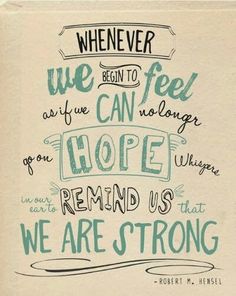So on friday as I was pulling into work, I got the call from my doctors that my tests results were in.
The secretary wanted to see me then and I told her I had to work, so she told me I needed to come in on Monday. I stupidly asked " is it good news or bad news?" Her reply...
Oh honey, she wants you to come in...
I knew ...my heart sank. I had a couple melt downs at work, that im a little ashamed to say. I ended up going home at 8:30 cause my blood pressure was 95. Hubby drove me home.
Saturday hubby & I drove over to Terra Studious. I used to take my kids there alot. It is a completely free place to go wander around and look at all the cool pottery & blown glass art. By the pond they had some swinging chairs under shaded flowering ...ok I cannot think of the word. ( thats one more side affect for this damn thing. I know what I want to say I can see it in my head but I cant think of the word to say) anyways it was over the swings. So we sat there in the shade swinging watching the pond & listening to the fountain. It was so peaceful. We did it again and I almost fell asleep leaning on hubbys shoulder. It was a very nice day. Hubby let me stop & take all the pictures I wanted. Then we stopped & got a whattaburger.
The next morning I slept til noon. I was soo sore and stiff. & I guess I paid the price for going to Terra's... But wanna know a secret? It was totally worth it!
So Monday came & I went to the doctors.
My cancer is not gone.It has shrunk. It was 24.83 cm and is now a lil over 13cm.
So 9.843 inches about to 5.118 inches. I had to look it up.
My daughter is coming to visit at the end of this month & I havent seen her in about 3 summers... And I am beyond excited to see her. The doctor wanted me to start on radiation again. But I don't want to be doing that when she is here. So we agreed to put me back on the megestrol & hormone therapy & when she goes back home I am going to start another round of radiation.but the thing is I didn't cry this time not in her office. I was just numb...
I went & had a visit with my mom & let her know what was going on. I drove home numb. I talked to hubby about it and was numb... but at some point I started talking to him I started crying then hysterically laughing. This is just not fair..
Today I woke to my alarm at 7 and took my meds and proceeded to getting sick all morning. I sat here laughing crying. One of the things we talked about at the doctors is getting on anxiety pills. she told me that cancer patients especially the ones that the cancer keeps coming back go through something similair to ptsd. so I looked it up today. Becuase I know Im depressed. I try so hard to hide it. & it's not becuase Im alone or have no support. I guess maybe becuase I feel like I have absolutely no control of my life and this seems to just never end. I am so numb, and angry, and sad, and tired and happy and confused... all rolled up in one nice package
Some aspects of the cancer experience that might trigger PTSD include:
-
Being diagnosed with the disease
-
Diagnosis of an advanced cancer
-
Painful tests and treatments
-
Pain from the cancer itself or other physical issues
-
Test results
-
Long hospital stays or treatments
-
A cancer recurrence or the potential for recurrence
Signs and symptoms of PTSD
It is normal for a person with cancer or a cancer survivor to have feelings of anxiety, such as worry, fear, and dread. However, if these feelings do not go away over time, continue to get worse, or affect daily life, they could be a sign of PTSD.Other symptoms of PTSD include:
-
Nightmares and flashbacks
-
Avoiding places, events, people, or things that bring back bad memories
-
Strong feelings of guilt, hopelessness, or shame
-
Trouble sleeping or concentrating
-
Continuous feelings of fear or anger
-
Loss of interest in activities and relationships that used to be enjoyable
-
Self-destructive behavior, such as drug or alcohol abuse
-
Frightening or unwanted thoughts
-
Difficulty feeling emotions
People with cancer and cancer survivors who have PTSD need have treatment because the disorder can keep them from getting needed tests, cancer treatments, or follow-up care. PTSD can also increase a person’s risk of developing other mental, physical, and social problems. These can include depression, alcohol and drug abuse, eating disorders, and loss of relationships and employment.
Risk factors for PTSD
It is not clear why some people develop PTSD while others do not. Certain factors may make a person more likely to develop the disorder, including a younger age at diagnosis. One study found that survivors of childhood cancer—especially those who had longer and more intensive treatment plans—had an increased risk of developing PTSD. Another found that nearly 20% of infants and preschoolers with cancer experience PTSD.PTSD also seems to be more common for:
-
People who have had PTSD or other mental health conditions before being diagnosed with cancer
-
Women from minority groups
-
People with high levels of overall stress
-
People who use avoidance strategies to cope with stress, such as drugs or alcohol
-
People with less formal education
-
People with low or no income
-
Single people
-
Receive strong support from family and friends
-
Are given correct information about the stage of the cancer
-
Have good relationships with members of the health care team
PTSD and caregivers
PTSD can also affect caregivers. Learning that a loved one has cancer, seeing a loved one in pain, and experiencing a medical emergency are traumatic events. And they may contribute to the development of PTSD symptoms during treatment or years after the person has survived the cancer. One study found that nearly 20% of families with teenaged survivors of childhood cancer had a parent who was experiencing PTSD. Research also shows that it is extremely common for parents of children receiving cancer treatment to develop stress-related symptoms.Treatment of PTSD
PTSD is treatable. Which treatment works best depends on a person’s specific symptoms and situation. Common treatments are listed here and are often combined.-
Psychotherapy. This means talking with a mental health
professional, like a counselor, who has experience treating PTSD. Some
counselors specialize in helping people who have or have had cancer.
Therapy can be done 1-on-1 or in a group setting. Some health insurance
companies pay for a portion of the treatment. Read more about the benefits of counseling.
-
Medications. Antidepressants and anti-anxiety drugs can help
manage PTSD symptoms, such as sadness, anxiety, and anger. Medication is
often used in combination with psychotherapy.
-
Support groups. Support groups can help people cope with the
emotional aspects of cancer. They provide a safe place to share
experiences and learn from other people facing similar situations. Research
shows that support groups can help people with cancer feel less
depressed and anxious and become more hopeful. Learn more about support groups.
Cancer Sux Ya'All!
~ Hope is what guides us. It's what gets us through the day & especially through the night.






No comments:
Post a Comment